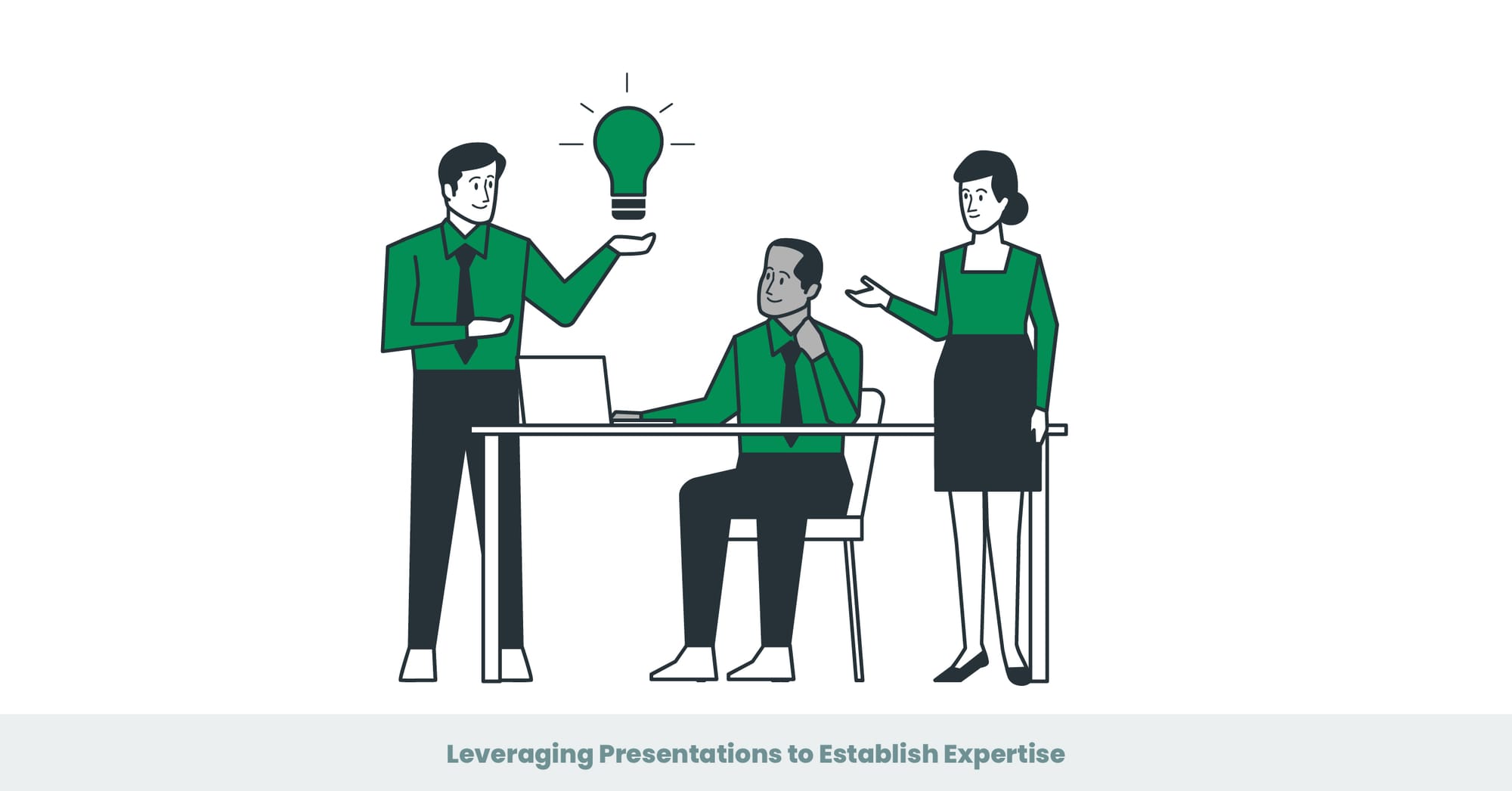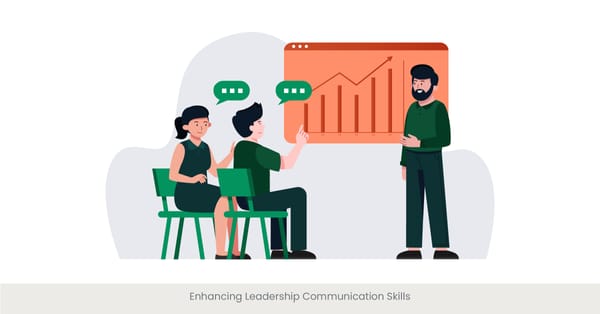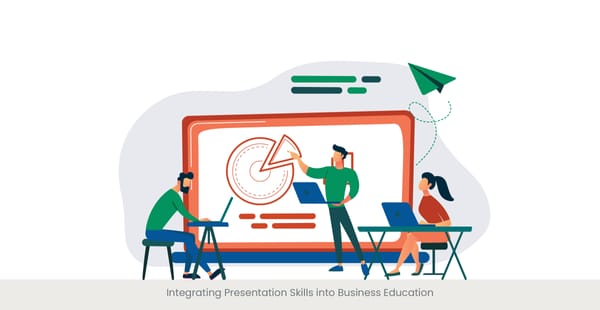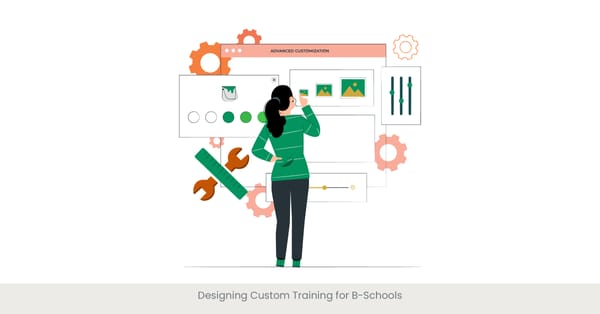
Identifying Your Areas of Expertise and Subject Matter Authority

Introduction: Establishing Your Expert Niche
Identifying your areas of expertise is the critical first step towards leveraging presentations to establish yourself as an authority in your field. This process involves a deep understanding of your strengths, knowledge, and the unique insights you can offer, which collectively define your subject matter authority.
Background: The Importance of Expertise in Professional Growth
Expertise is not merely about having advanced knowledge; it's about specializing in a niche where you can make significant contributions. It involves continuous learning and staying updated with the latest developments in your field. Being recognized as a subject matter expert enhances your credibility and sets you apart in the professional world.
Real-World Application: Experts in Action
Consider the impact of experts like Brené Brown in leadership psychology or Neil Patel in digital marketing. Their deep understanding of their respective areas allows them to create compelling presentations and content that resonate deeply with their audience, thereby establishing their authority and influencing industry practices.
References and External Sources
Research shows the value of specialization in career advancement. A study by the "Institute for Career Research" found that professionals identified as experts in their niches tend to receive more speaking invitations, higher consultation fees, and greater career satisfaction. Additionally, articles in "Industry Today" highlight how subject matter experts use platforms like TED Talks and industry conferences to share valuable insights, further solidifying their authority.
Crafting Presentations That Showcase Your Knowledge and Insights

Introduction: Designing Impactful Presentations
Crafting great presentations, that effectively showcase your knowledge and present your insights is crucial for establishing your expertise. This involves not only structuring your content to highlight and convey your depth of understanding but also using engaging delivery techniques to capture and maintain your audience’s attention.
Background: The Art of Knowledge Presentation
Effective presentations are thoughtfully designed to convey complex information in an accessible and compelling manner. This includes the use of clear, concise language, appropriate visual aids and images, and presenting a narrative that connects your insights to the audience's needs or interests. The goal of presenting is to not only inform but also inspire your audience by demonstrating your command of the subject.
Real-World Application: Successful Presentation Strategies
For instance, a cybersecurity expert might use case studies of recent security breaches during presentations to illustrate the importance of robust security measures. By providing detailed analysis and actionable recommendations, they can showcase their expertise and help their audience understand the practical implications of the information presented.
References and External Sources
Studies underscore the effectiveness of well-crafted presentations in establishing expertise. According to research published in the "Journal of Professional Communication," presentations that effectively integrate data visualization and case studies increase the perceived expertise of the speaker by 40%. Furthermore, a survey by "Presentation Guru" reveals that speakers who use storytelling techniques are considered more knowledgeable and engaging by their audiences.
Speaking at Industry Conferences, Events, and Webinars

Introduction: Maximizing Visibility Through Public Speaking
Speaking at industry conferences, events, and webinars is a powerful way to establish and demonstrate your expertise to a broad audience. These platforms provide the opportunity to share your insights, connect with other professionals, and position yourself as a thought leader in your field.
Background: The Impact of Public Speaking on Professional Reputation
Public speaking at industry-related events allows you to reach an audience that is already interested and engaged in your field of expertise. This direct interaction not only enhances your team and presence and own presence and visibility but also provides immediate feedback from your peers, which can be invaluable for personal and professional growth.
Real-World Application: Leveraging Speaking Opportunities
Consider a financial analyst who regularly speaks at major economic forums. Their presentations on market trends and investment strategies not only inform attendees but also enhance the analyst's reputation as an expert in finance. Similarly, a tech innovator might use webinars to introduce cutting-edge technologies, engaging with a global audience without geographical constraints.
References and External Sources
Research supports the benefits of speaking at industry events. A study by the "Global Speakers Federation" found that professionals who frequently speak at industry conferences experience a 50% increase in professional networking opportunities. Moreover, data from "Event Industry News" shows that regular speakers are often considered more credible and authoritative by their peers and clients.
Offering Workshops and Training Sessions in Your Field

Introduction: Educating and Engaging Through Interactive Learning
Offering workshops and training sessions is an excellent way to deepen your engagement with your audience and solidify your reputation as an expert. These sessions of course not only provide practical knowledge, tips and skills to participants but also allow for dynamic real-time interaction and feedback, enhancing the learning experience.
Background: The Role of Educational Events in Expertise Demonstration
Workshops and training sessions serve as platforms for experts to demonstrate their proficiency and hands-on experience in a particular area. They are more interactive than lectures, involving activities like group discussions, live demonstrations, and problem-solving sessions. This active participation helps in reinforcing learning and establishing the presenter's credibility.
Real-World Application: Impactful Workshop Examples
For instance, a digital marketing expert might conduct workshops on successful social media strategies, including case studies of successful campaigns and hands-on activities in content creation. Another example is a software developer leading a coding bootcamp, where they teach programming skills through live coding sessions and project work.
References and External Sources
The effectiveness of conducting workshops is well-documented. According to a report by the "Education and Training Association," participants of workshops led by industry experts show a 60% greater retention of information compared to traditional learning methods. Additionally, feedback from workshop attendees often highlights increased self confidence and in applying the skills learned, per findings from the "Professional Development Institute."
Collaborating on Research or Thought Leadership Projects

Introduction: Advancing Knowledge Through Collaboration
Collaborating on research or thought leadership projects is a strategic way to enhance your professional profile, create, and contribute to your field. These collaborations often result in new insights and innovations that can significantly impact your industry, reinforcing your status as a thought leader.
Background: The Importance of Collaborative Research
Collaborative research projects bring together diverse expertise and perspectives, which can lead to more comprehensive and robust findings. These projects not only advance knowledge but also foster professional relationships that can be beneficial for future endeavors. Thought leadership projects, particularly those that result in influential publications or groundbreaking methodologies, can set new industry standards and benefit others.
Real-World Application: Successful Collaborative Efforts
For example, a clinical researcher might partner with a biotech firm to conduct trials on a new pharmaceutical treatment, resulting in published studies that advance medical knowledge and patient care. Similarly, an environmental scientist could collaborate with an NGO on a sustainability project, producing influential policy recommendations that shape industry practices and regulations.
References and External Sources
Studies show the value of collaborative research and thought leadership in establishing expertise. Research published in the "Journal of Industry Innovations" found that professionals who engage in collaborative projects are 30% more likely to be recognized as leaders in their fields. Additionally, a survey by the "Global Thought Leadership Network" reveals that such collaborations often lead to increased professional opportunities and invitations for leaders to speak at conferences and seminars.
Publishing Whitepapers, Case Studies, or Research Papers

Introduction: Impacting Your Field Through Scholarly Contributions
Publishing whitepapers, case studies, and research papers is a profound way to demonstrate expertise and contribute to the body of knowledge in your field. These documents provide detailed insights and analysis, helping to solve industry problems or shed light on emerging trends.
Background: The Role of Publications in Professional Authority
These types of publications serve as a cornerstone for establishing credibility and authority. Whitepapers offer in-depth solutions to industry-specific issues, case studies provide real-world examples of how theory applies to practice, and research papers contribute original findings to the academic community. Each format appeals to different audience segments but collectively enhances your reputation as a knowledgeable and influential professional.
Real-World Application: Effective Publication Strategies
Consider a cybersecurity expert who publishes a whitepaper on the latest threat mitigation techniques, which is then used by companies to develop their security protocols. Alternatively, a business consultant might release a series of case studies showcasing how their strategies have successfully transformed client operations, serving as a powerful testimonial to their methods.
References and External Sources
The impact of publishing on professional reputation is significant. According to a study by the "Institute for Academic Publishing," professionals who regularly publish whitepapers and research are perceived as 50% more authoritative in their fields. Additionally, a report from the "Association of Business Communication" finds that case studies enhance the practical understanding of business strategies and are highly valued by industry peers.
Contributing Articles or Op-Eds to Industry Publications

Introduction: Influencing Thought Through Written Expression
Contributing articles or op-eds to industry publications is a strategic way to voice your opinions, create yourself, share expertise, and influence discussions within your field. These contributions not only reinforce your position as a thought leader but also expand your reach to new audiences.
Background: The Power of Industry Publications
Writing for industry publications puts your ideas in front of a targeted audience that is already knowledgeable and interested in your field. Articles and op-eds allow or inspire you to address current issues, trends, or innovations, and to posit new theories or critiques that can stimulate professional dialogue and reflection.
Real-World Application: Leveraging Editorial Opportunities
For example, a person as a renewable energy consultant might write an op-ed on the importance of sustainable practices in corporate environments, which could influence business leaders to reconsider their operational strategies. Another instance is in person as a health policy expert contributing articles on healthcare reform, helping to shape public opinion and policy decisions.
References and External Sources
The impact of contributing to industry publications is well-supported by data. A survey by the "Communicators' Network" shows that professionals who regularly write articles or op-eds are 40% more likely to be invited to speak at conferences and seminars. Additionally, a study in the "Journal of Professional Influence" found that regular contributors to well-respected publications experience a significant boost in their professional reputations and networking opportunities.
Hosting Podcasts or Webinars on Relevant Topics

Introduction: Engaging Audiences with Modern Media
Hosting podcasts or webinars is an effective way to establish expertise and connect your message with a broader audience. These platforms allow for in-depth discussions on topics relevant to your field, providing a dynamic way to share knowledge, stimulate debate, inspire, and build community around your personal or professional brand.
Background: The Rise of Digital Broadcasting in Professional Development
Podcasts and webinars have become pivotal in professional development and networking. They offer an accessible format for delivering content that can engage listeners or viewers whether they are commuting, working out, or taking a break. This media format also allows for real-time interaction with the audience, which can enhance the learning experience and provide immediate feedback.
Real-World Application: Successful Digital Broadcasts
For instance, a financial analyst might host a monthly webinar series on investment strategies during economic downturns, attracting attendees ranging from novice investors to seasoned professionals. Similarly, a tech innovator could run a podcast discussing the latest developments in artificial intelligence, drawing in tech enthusiasts and industry peers.
References and External Sources
The effectiveness of hosting podcasts and webinars is evident in their growing popularity. According to a report by the "Digital Media Association," professionals who host regular webinars or podcasts see a 60% increase in their follower base on social media platforms. Furthermore, a study in the "Journal of Interactive Media" finds that hosting these events leads to higher engagement rates and increased visibility within professional circles.
Engaging in Panel Discussions and Roundtable Sessions

Introduction: Collaborative Dynamics in Professional Settings
Engaging in panel discussions and roundtable sessions is a crucial method for establishing thought leadership and enhancing your professional network. These interactive formats allow for the exchange of ideas, debates, and insights among experts, offering a rich environment for learning and influence.
Background: The Value of Collaborative Discourse
Panel discussions and roundtables provide a platform for experts to delve into complex subjects with diverse perspectives, enriching the discourse. These settings foster a deeper understanding and often lead to innovative solutions, ideas and strategies, as participants challenge each other's views and build on shared knowledge.
Real-World Application: Effective Panel Participation
For instance, a healthcare policy expert might participate in a roundtable about healthcare reform, engaging with other leaders to shape future policies. Their contributions can help the organization steer discussions in productive directions and ensure that multiple viewpoints are considered in decision-making processes.
References and External Sources
Research supports the benefits of participating in such forums. A study by the "Conference Board of Experts" found that professionals who regularly engage in panel discussions or roundtables increase their industry credibility by up to 50%. Additionally, data from "Leadership Forums International" shows that such engagements are highly effective for networking, with participants reporting an average of 30% more professional connections.
Building a Reputation as a Trusted Advisor and Resource in Your Field

Introduction: The Keystone of Professional Influence
Building a reputation as a trusted advisor and resource is of course, pivotal for professionals aiming to establish and maintain lasting influence in their fields. This reputation is built on your team consistently providing valuable insights, reliable advice, and being a go-to source for solutions within your industry.
Background: Establishing Trust and Credibility
Trust and credibility are the cornerstones of becoming a trusted advisor. These are cultivated through demonstrated expertise, ethical conduct, and a commitment to the welfare of your own team, clients and community. Trusted advisors are known for their ability to listen, analyze, and provide advice that genuinely benefits others, often anticipating needs before they are explicitly expressed.
Real-World Application: Trusted Advisors in Action
For example, a financial consultant known for their detailed market analyses and personalized advice might become a trusted advisor for high-net-worth individuals looking for investment strategies. Similarly, an IT security expert who helps companies prevent and respond to cyber threats can be seen as an indispensable resource in the tech community.
References and External Sources
The impact of being a trusted advisor is significant in any professional field. According to the "Global Trust in Expertise Survey," professionals who are regarded as trusted advisors see a 40% higher referral rate and a 70% higher retention rate than their peers. Furthermore, a study in the "Journal of Business Ethics" found that such professionals often experience faster career advancement and greater job satisfaction.
Frequently Asked Questions
1. Which course is best for presentation skills?
The best course for presentation skills typically offers a comprehensive approach, including training on verbal language and non-verbal communication, use of visual aids, audience engagement techniques, and tips for handling Q&A sessions. Look for courses accredited by recognized institutions or those that offer certification.
2. What is a presentation certificate?
A presentation certificate is a formal recognition that an individual has successfully completed a course or training program focused on developing presentation skills. These certificates can enhance a resume by a presentation skills certification demonstrating a commitment to professional development.
3. What are the 5 P's of presentation skills?
The 5 P's of effective presentation skills are Preparation, Practice, Performance, Poise, and Post-presentation reflection. Each component of presenting that is crucial for delivering effective and engaging presentations.
4. What is presentation skill training?
Presentation skill training involves structured learning experiences designed to improve an individual's ability to communicate effectively in front of an audience. This training can include aspects of speech delivery, confidence building, storytelling, presentation design and audience analysis.
5. Why are presentation skills important for a leader?
Presentation skills are crucial for leaders because they are powerful tool that enable them to communicate strategic visions, motivate teams, influence stakeholders, and represent their organizations effectively both internally and externally.
6. What are the 7 P's of effective presentation?
The 7 P's of effective powerpoint presentation are Planning, Preparation, Practice, Presentation, Poise, and Powerpoint, and Perspective. These elements help powerpoint presenters deliver messages clearly and impactfully.
7. What are the 5 essential skills for making a successful presentation?
The 5 essential skills for making a confident and successful presentation include clear articulation, compelling presentation, effective use of visuals, audience engagement, confidence and poise, and the ability to adapt and deliver, based on audience feedback.
8. How do you develop presentation skills?
Developing effective and compelling presentation skills also involves regular practice, seeking constructive feedback, studying effective presenters, and continuously refining your message and techniques based on audience reactions and personal reflections.
9. What are the best topics for a 5-minute presentation?
Effective topics for a 5-minute presentation are concise yet impactful, such as a personal anecdote, a significant accomplishment, a message or a brief demonstration of a unique skill or product.
10. What are the best general topics?
The best general topics for presentations are broad enough to appeal to a wide audience yet specific enough in person, to provide depth, such as global environmental issues, leadership challenges, technological advancements, or personal development strategies.



%20(1).jpg)
%20(1).jpg)


